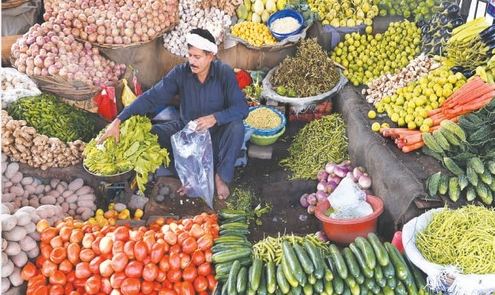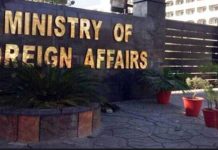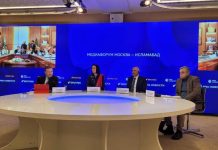ISLAMABAD: Consumer inflation raced to 38 per cent in May, the highest annual rise in prices on record, driven mainly by skyrocketing costs of food, house rents, electricity and gas bills, and transport, official data showed on Thursday.
Non-perishable foods and transport costs climbed more than 50pc over May 2022, while average inflation for this fiscal year has reached 29.2pc, the Pakistan Bureau of Statistics said.
The May reading exceeded the finance ministry’s projection of 34-36pc for the month and comes as political turmoil continues to roil the country.
Years of financial mismanagement, rupee depreciation and the government’s failure to unlock IMF funding have also played a role in taking annual price hikes to such record highs.
CPI reading hits highest-ever mark of 38pc, exceeding govt expectations
Official data showed that the average price of a 20kg wheat flour bag more than doubled to around Rs2,700 in May compared to the same month a year ago.
The average price of chicken (live) rose by 38.6pc to Rs435 per kg, that of milk by 41pc to Rs170 a litre, and that of eggs by 85pc to Rs280 a dozen. Pulses and vegetables also became costlier.
“This level of inflation badly affects poor and middle-class families of the country, whose income is evaporating with each percentage point,” AFP quoted Mohammad Sohail, a financier in Karachi, as saying.
However, monthly inflation — measured by a basket of products and services called the Consumer Price Index (CPI) — is likely to go down from June due to a high-base effect.
It has been rising since mid-2022 after the government took painful measures as part of fiscal adjustments demanded by the International Monetary Fund to unlock stalled funding.
It had stayed above 20pc from June last year to January. It then hit 31.6pc in February, crossed 35pc in March, escalated to 36.4pc in April and now to 37.97pc in May. The reading was 13.8pc in May 2022.
Compared to the previous month, however, inflation dropped to 1.6pc in May from 2.4pc in April.
Annual inflation in May was 35.1pc in urban areas and 42.2pc in rural areas. Food inflation for the month was 48.1pc and 52.4pc for urban and rural areas, respectively, whereas non-food inflation was 26.6pc in urban and 32.5pc in rural areas.
Core inflation, which strips out food and energy, stood at 20pc in urban areas and 26.9pc in rural areas.
Main contributors
In urban areas, food items whose prices rose the most in May compared to last year were cigarettes (148.33pc), tea (112.18pc), potatoes (108.2pc), wheat flour (99pc), wheat (94.8oc) and eggs (90.3pc).
The non-food products whose prices saw the highest increases included textbooks (113.98pc), stationery (79.38pc), motor fuels (69.9pc), washing soap/detergents/matchbox (63.7pc), gas charges (62.8pc) and electricity charges (59.28pc).
The trend wasn’t much different in rural areas, where price hikes were: cigarettes (127.23pc), potatoes (113.54pc), tea (106.35pc), wheat flour (100.5pc), wheat (93.46pc) and eggs (88.31pc).
The non-food items whose rates saw significant increases in rural areas were: textbooks (129.44pc), motor fuels (74.92pc), washing soaps, detergents and match box (60.96pc) and electricity charges (59.28pc).
‘Things getting worse’
The PTI lambasted the government for failing to control inflation. “Shameful how the regime doesn’t stop their fascism. The inflation has skyrocketed to 38pc, and their response is arresting former CM Punjab Parvez Elahi. Absolutely ridiculous!” it said in a Twitter post.
Party leader Hammad Azhar also said the latest inflation reading was significantly higher than Pakistan’s major trading partners. “For those who understand basic economics or mathematics, that will naturally put our currency under further pressure. No matter what fancy dreams [Finance Minister Ishaq] Dar sells to buy time, things are getting worse,” he tweeted.

















